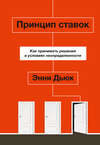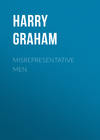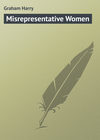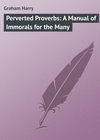Read the book: «The Mother of Parliaments»
PREFACE
The history of England's Parliament is the history of the English people. To the latter it must consequently prove a source of never-failing interest. That it does so is clearly shown by the long list of writers who have sought and found inspiration in the subject. To add to their number may perhaps seem an unnecessary, even a superfluous, task. This volume may indeed be likened to that "Old Piece in a New Dress" to which Petyt compared his Lex Parliamentaria. "These things, men will say, have been done before; the same Matter, and much the same Form, are to be found in other Writers, and this is but to obtrude upon the World a vain Repetition of other men's observations." But although the frank use of secondhand matter cannot in this case be denied, it is to be hoped that even the oldest and most threadbare material may be woven into a fresh pattern, suitable to modern taste.
In these democratic days a seat in either House of Parliament is no longer the monopoly of a single privileged class: it lies within the reach of all who can afford the luxury of representing either themselves or their fellows at Westminster. It is therefore only natural that the interest in parliamentary affairs should be more widely disseminated to-day than ever. It does not confine itself to actual or potential members of both Houses, but is to be found in the bosom of the humblest constituent, and even of that shadowy individual vaguely referred to as the Man in the Street. Though, however, the interest in Parliament is widespread, a knowledge of parliamentary forms, of the actual conduct of business in either House, of the working of the parliamentary machine, is less universal.
At the present time the sources of information open to the student of parliamentary history may roughly be regarded as twofold. For the earnest scholar, desirous of examining the basis and groundwork of the Constitution, the birth and growth of Parliament, the gradual extension and development of its power, its privileges and procedure, the writings of all the great English historians, and of such parliamentary experts as Hatsell, May, Palgrave, Sir William Anson, Sir Courtenay Ilbert and Professor Redlich, provide a rich mine of information. That more considerable section of the reading public which seeks to be entertained rather than instructed, can have its needs supplied by less technical but no less able parliamentary writers – Sir Henry W. Lucy, Mr. T. P. O'Connor, Mr. MacDonagh – none of whom, as a rule, attempts to do more than touch lightly upon fundamental Constitutional questions.
The idea of combining instruction with amusement is one from which every normal-minded being naturally shrinks: the attempt generally results in the failure either to inform or entertain. There does, however, seem to be room for a volume on the subject of Parliament which shall be sufficiently instructive to appeal to the student, and yet not so technical as to alarm or repel the general reader. It is with the object of supplying the need for such a book that the following pages have been written.
An endeavour to satisfy the tastes of every class of reader and at the same time to cover the whole field of parliamentary history within the limits of a single volume, must necessarily lead to many errors of admission as well as of omission. The material at the disposal of the author is so vast, and the difficulties of rejection and selection are equally formidable. Much of the information given must perforce be so familiar as to appear almost hackneyed. Many of the stories with which these pages are sprinkled bear upon them the imprint of extreme old age; they are grey with the cobwebs of antiquity. But while the epigram of the past is too often the commonplace of the present, the witty anecdote of one generation, which seems to another to plumb the uttermost abysses of fatuity, may yet survive to be considered a brilliant example of humour by a third. The reader, therefore, who recognises old favourites scattered here and there about the letterpress, will deride or tolerate them in accordance with the respect or contempt that he entertains for the antique.
I cannot lay claim to the possession of expert parliamentary knowledge, though perhaps, after close upon fifteen years' residence within the precincts of the Palace of Westminster, I may have acquired a certain intimacy with the life and habits of the Mother of Parliaments. For my facts I have to a great extent relied upon the researches of numerous parliamentary writers, past and present, to whom I have endeavoured to express my indebtedness, not only in copious footnotes, but also in the complete list of all sources of information given at the end of this volume. I wish to express my thanks to the many friends and acquaintances who have so kindly assisted me with their counsel and encouragement; to Mr. Kenyon, Mr. Sidney Colvin and the officials of the Print Room and Reading Room at the British Museum; to Sir Alfred Scott-Gatty, Garter King-at-Arms; to Mr. Edmund Gosse, Librarian of the House of Lords, and other officers of both Houses. My thanks are particularly due to Sir Henry Graham, Clerk of the Parliaments, who placed his unique parliamentary experience at my disposal, and whose invaluable advice and assistance have so greatly tended to lighten and facilitate my literary labours.
H. G.
CHAPTER I
PARLIAMENT AND PARTY
It has been asserted that the different social conditions of various peoples have their origin, not so much in climate or parentage, as in the character of their governments. If that be true, there is little doubt that the social conditions of England should compare most favourably with those of sister nations. But the admirable form of Government to which Englishmen have now long been accustomed, did not come into existence in the course of a single night. "The resemblance between the present Constitution and that from which it originally sprang," says an eighteenth-century writer, "is not much nearer than that between the most beautiful fly and the abject worm from which it arose."1 And the conversion of the chrysalis into the butterfly has been a slow and troublesome process.
Montesquieu, who was an earnest student of the English Constitution, after reading the treatise of Tacitus on the manners of the early Germans, declared that it was from them that England had borrowed her idea of political government. Whether or no this "beautiful system was first invented in the woods,"2 as he says, it is certain that we owe the primary principles of our existing constitution to German sources. They date back to the earliest days of the first settlements of Teutons on the Kentish shores.
To the word "parliament" many derivations have been assigned. Petyt explains the name as suggesting that every member of the assembly which it designates should parler le ment or speak his mind.3 Another authority derives it from two Celtic words, signifying to "speak abundantly" – a meaning which is more applicable in these garrulous times than it was in days when debate was often punctuated by lengthy intervals of complete silence.
Whatever its derivation, the word no doubt referred originally to the "deep speech" which the kings of old held with their councillors. The first mention of it, in connexion with a national assembly, occurs in 1246, when it was used by Matthew Prior of a general convocation of English barons. About thirty years later it appears again in the preamble to the First Statute of Westminster. It has now come to be employed entirely to describe that combination of the Three Estates, the Lords Spiritual, the Lords Temporal and the Commons, which with the Crown form the supreme legislative government of the country.
The ancient Britons possessed a Parliament of a kind, called the Commune Concilium. Under the Heptarchy each king in England enjoyed the services of an assembly of wise men – or Witenagemot, as it was called – which advised him upon matters of national importance. The Witan sat as a court of justice, formed the Council of the chiefs, and could impose taxes and even depose the King, though the latter too often took the whole of their powers into his own hands. When the separate kingdoms became united, their different Councils were absorbed into the one great Gemot of Wessex. This, in Anglo-Saxon times, was a small body, consisting of less than a score of Bishops, a number of Ealdormen (or heads of the different shires), and certain vassal members. This senate was undoubtedly the germ of all future systems of Parliamentary government; and though for the first two hundred years after the Conquest there is no historical record of the meeting of any body corresponding to our present Parliament, from the days of the Witenagemot to our own times the continuity of our national assemblies has never been broken.
The parliamentary historian suffers much from the lack of early records. None were kept in Anglo-Saxon times, the judgments of the Witan being only recorded in the memory of the judges themselves. The Rolls of Parliament begin with the year 1278 – though the first mention of the Commons does not occur until 1304 – and somewhere about Edward III.'s reign was written a volume called the "Vetus Codex" or "Black Book" which contains transcripts of various parliamentary proceedings. At the time of the restoration of Charles II., Prynne, the antiquarian, set himself the task of exhuming old records, and catalogued nearly a hundred parcels of ancient writs, private petitions, and returns. The MSS. which he worked upon were so dirty that he could not induce any one else to clean them, and was forced to labour alone. Wearing a nightcap over his eyes, to keep out the dust, and fortified by continual draughts of ale, he proceeded cheerfully with this laborious undertaking upon which he finally based the book which has made him famous.4
The House of Commons Journals begin with Edward VI. those of the Lords at the accession of Henry VIII. And though during the early part of the seventeenth century speeches were reported at some length in the Commons Journals, in the Lords only the Bills read and such matters are recorded.5 The material to work upon is consequently of an exiguous nature, until we reach the later days of freedom of the Press and publicity of debates.
The history of Parliament proper divides itself naturally into four distinct periods. The first may be said to stretch from the middle of the thirteenth to nearly the end of the fifteenth century; the second dates from the accession of Henry VII., and extends to the Revolution of 1688. The remaining century and a half, up to the Reform Bill of 1832, forms the third period; and with the passing of that momentous Act commences the last and most important epoch of all.
During the first two periods of parliamentary history, the whole authority of government was vested in the Crown; during the third it gradually passed into the possession of the aristocracy: and it is only within the last century that the people, through their representatives in the House of Commons, have gained a complete political ascendency.
From the days of the absolute monarchy of Norman sovereigns until the reign of King John, the Crown, the Church, the Barons, and the people, were always struggling with each other; in that reign the three last forces combined against the King. The struggle was never subsequently relaxed, but it took over six centuries to transfer the governing power of the country from the hands of one individual to that of the whole people.
Prior to the reign of Henry III., no regular legislative assembly existed, though the King would occasionally summon councils of the great men of the land for consultative purposes. In William the Conqueror's time the ownership of land became the qualification for the Witenagemot, and the National Council which succeeded that assembly thus became a Council of the King's feudal vassals, and not necessarily an assembly of wise men. When, however, Simon de Montford overthrew Henry III. at Lewes, he summoned a convocation which included representative knights and burgesses, and the parliamentary system, thus instituted, was subsequently adopted by Edward I. "Many things have changed," says Dr. Gardiner in his "History of England," "but in all main points the Parliament of England, as it exists at this day, is the same as that which gathered around the great Plantagenet." The first full Parliament in English history may, therefore, be said to have been summoned by Edward I. on November 13, 1295, and represented every class of the people.
Parliament thereafter gradually resolved itself into two separate groups; on the one hand the barons and prelates, representing the aristocracy and the Church, on the other the knights and burgesses, representing the county freeholders, citizens and boroughfolk. The former constituted a High Court of Justice and final Court of Appeal; the chief duty of the latter lay in levying taxes, and they were not usually summoned unless the Crown were in need of money. These two component groups originally sat together, forming a collective assembly from which the modern Parliament has gradually developed.
In the early days of Parliament the Lords came to be regarded as the King's Council, over which he presided in person; the Commons occupied a secondary and insignificant position. The power of legislating was entirely in the hands of the King, who framed whatever laws he deemed expedient, acting on the humble petition of his people. The Crown thus exercised absolute control over Parliament, and the royal yoke was not destined to be thrown off for many hundreds of years.
In the reign of Edward III., the meetings of Parliament were uncertain and infrequent; its duration was brief. Three or four Parliaments would be held every year, and only sat for a few weeks at a time. The King's prerogative to dissolve Parliament whenever he so desired – "of all trusts vested in his majesty," as Burke says, "the most critical and delicate"6 was one of which mediæval monarchs freely availed themselves in the days when Parliament had not yet found, nor indeed realised, its potential strength.
During the reigns of the Tudors and Stuarts, the power of the Crown was still supreme, though many attempts were made to weaken it. This second period of history, between 1485 and 1688, was a time of peculiar political stress, in which Parliament and the Crown were engaged in a perpetual conflict. Kings maintained their influence by a mixture of threats and cajolery which long proved effective. In 1536, for instance, we find Henry VIII. warning the House of Commons that, unless some measure in which he was interested were passed, certain members of that assembly would undoubtedly lose their heads.7
The Stuart kings were in the habit of suborning members of both Houses, by the gift of various lucrative posts or the lavish distribution of bribes. It was ever the royal desire to weaken Parliament, and this end was attained in a variety of ways. In the early part of the seventeenth century, we hear of Charles I. summoning to Hampton Court certain members whose loyalty he distrusted or whose absence from Parliament he desired. On one such occasion the Earls of Essex and Holland refused to obey his command, saying that their parliamentary writ had precedence of any royal summons – an expression of independence for which they were dismissed from the Court.8
In the time of Charles II. a definite system of influencing members of Parliament by gifts of money was first framed, Lord Clifford, the Lord Treasurer, being allowed a sum of £10,000 for the purpose. The fact of holding an appointment in the pay of the Crown was in itself considered sufficient to bind a member to vote in accordance with the royal will. In 1685, when many members who were in the Government service threatened to vote against the Court, Middleton, the Secretary of State, bitterly reproached them with breach of faith. "Have you not a troop of horse in his Majesty's service?" he asked of a certain Captain Kendall. "Yes, my lord," was the reply, "but my brother died last night and left me £700 a year!"9
Andrew Marvell has drawn a vivid but disagreeable picture of the Parliament which was summoned immediately after the Restoration. Half the members of the House of Commons he described as "court cullies" – the word "to cully" meaning apparently to befool or cheat – and in "A list of the Principal Labourers in the great Design of Popery and Arbitrary Law," gives a catalogue of the names of over two hundred members of Parliament who received presents from the Court at this time.10
The independence of Parliament was first asserted by that staunch old patriot Sir John Eliot, who, during the reign of Charles I., declared to the Commons that they "came not thither either to do what the King should command them, nor to abstain when he forbade them; they came to continue constant, and to maintain their privileges."11 But in spite of such brave words, the power of the Crown was not finally subdued until the Revolution.
The downfall of the Monarchy at the time of the Commonwealth was followed by the temporary abolition of both Lords and Commons, the latter disappearing in company with Cromwell's famous "bauble." The Protector then proceeded to call together a body of "nominees," one hundred and forty in number, who represented the various counties in proportion to the amount of taxes each of these contributed. Of the seven nominees supplied by London, Praise God Barebones, a Fleet Street leather merchant, gave his name to the Parliament thus assembled. Cromwell also created a new House of Lords, numbering about sixty.12
With the Restoration the Crown resumed much of its former power. In 1682 the publisher of a reprint of Nathaniel Bacon's "Historical Discourse," which declared that Kings could "do nothing as Kings but that of Right they ought to do," and that though they might be "Chief Commanders, yet they are not Chief Rulers," was outlawed for these treasonable statements. It was not, indeed, until the Revolution of 1688 that the royal influence was curtailed, so small a revenue being allowed to William III. that the ordinary expenses of government could not be defrayed without assembling Parliament.
The attendance of the King in Parliament had been usual in early days, but the Commons always deprecated the presence of the Sovereign in their midst. Charles I. affords the only example of a monarch attending a debate in the Lower House, when on that famous 4th of January, 1642, he marched from Whitehall to Westminster, with the intention of arresting the five leading members, Hampden, Pym, Holles, Haselrig and Strode, authors of the Grand Remonstrance, whom he had caused to be impeached on the preceding afternoon. The House had been put upon its guard by Lady Carlisle, and on the eventful day, a French officer, Hercule Langres, made his way to Westminster and warned Pym and his colleagues of the approach of the royal troops. When therefore the King arrived he found that his birds had already flown, and was compelled to retire empty-handed, amid cries of "Privilege!" from members of the outraged assembly.
In those times the desire of the Commons was to keep the Crown as ignorant as possible on the subject of their doings. The habit of providing the King with a daily account of Parliamentary proceedings did not come into fashion until the end of the eighteenth century, when the House was no longer afraid of the royal power.
The Lords have never objected as strongly as the Commons to the royal presence. Charles II. often found the time hang heavy on his hands, and would stroll down to the Upper House, "as a pleasant diversion." He began by sitting quietly on the Throne, listening to the debates. Later on he took to standing by the fireplace of the Lords, where he was soon surrounded by many persons anxious to gain the royal ear, and thus "broke all the decency of that House."13 Since the accession of Queen Anne, however, no Sovereign has been present in Parliament, save at the opening or closing ceremonies. But long after kings had ceased to attend Parliament in person they continued to attempt the control of its proceedings. George III. finally brought matters to a head by his perpetual interference with the affairs of the Commons, and caused the passing of that momentous resolution, moved by Dunning on April 6, 1780, "that the influence of the Crown has increased, is increasing, and ought to be diminished," which disturbed if it could not vex Dr. Johnson.14
Between 1688 and 1832 political life in England was excessively corrupt. Parliament had grown to a certain extent independent of the Crown, but had not yet learnt to depend upon public opinion. It was consequently a difficult body to deal with, and had to be managed by a system of open bribery which first showed itself most conspicuously in the shape of retaining fees paid to Scottish members.15 In 1690 the practice of regularly bribing members of the House of Commons was undertaken by the Speaker, Sir John Trevor, on behalf of the Tory party. In Queen Anne's reign a statesman paid thousands of pounds for the privilege of being made Secretary of State, and a few years later we find Sir Robert Walpole assuring a brother of Lord Gower that he knew the price of every man but three in the House of Lords.16
Bribery no longer emanated direct from the Crown, but was practised vicariously by the King through his ministers. They might object to the system, but, as King William once said to Bishop Burnet, they had to do with "a set of men who must be managed in this vile way or not at all."17 Macaulay likens the Parliament of that time to a pump which, though it may appear dry, will, if a little water is poured into it, produce a great flow. So, he says, £10,000 given in bribes to Parliament would often produce a million in supplies.18 Even Pelham, a man of unblemished reputation in private life, saw the absolute necessity of distributing bribes right and left. And in 1782 we find Lord North writing to George III. to remind him that "the last general election cost near £50,000 to the Crown, beyond which expense there was a pension of £1000 a year to Lord Montacute and £500 a year to Mr. Selwyn for their interest at Midhurst and Luggershall."19
Seats in Parliament were regularly bought and sold, the price varying from £1500 to as much as £7000. Flood, the Irish politician, purchased a seat in the English House of Commons for £4000. The notoriously corrupt borough of Gatton was publicly advertised for sale in 1792, with the power of nominating two representatives for ever, described by the auctioneer as "an elegant contingency."20 This same seat was sold in 1831 by Sir Mark Wood for the huge sum of £60,000, and the purchaser's feelings may well be imagined when, under the Reform Act of the following year, the borough was disfranchised and rendered worthless.21
Parliament was for long in the hands of a few rich persons. Wealthy individuals would buy property in small boroughs in order to increase their political influence, and cared little for the fitness of the representatives whom they nominated. The story is told of a peer being asked who should be returned for one of his boroughs, and casually mentioning a waiter at White's Club whom he did not even know by name. The waiter was duly elected, and, for aught we know, may have made a most worthy and excellent member of Parliament.22
In 1815 the House of Commons contained 471 members who were the creatures of 144 peers and 123 Commoners. Sixteen representatives were Government nominees; and only 171 members were actually elected by the popular vote.23 Five years later nearly half the House were returned by peers.24
The passing of the Septennial Act in 1716, in place of the Triennial Act of 1694, though meeting with much hostile criticism,25 had helped to further that growing independence of both Lords and Crown which was the chief aim of the Commons. Before the Triennial Act Parliament could only be dissolved by the Crown. Under the Triennial Act it suffered a natural death three years after the day on which it was summoned. The Septennial Act lengthened that existence by a further period of four years. Members were no longer kept in a state of perpetual anticipation of an imminent General Election; they were no more harassed by the fear of losing their seats at any moment. With security came strength, but purity was a long time in following. The Septennial Act, says Lecky, gave "a new stability to English policy, a new strength to the dynasty, and a new authority to the House of Commons." But it certainly did not tend to decrease the corruption which was then rampant both in Parliament and in the country.
The whole body politic was, indeed, utterly rotten, and it was only considered possible to maintain the ministerial influence by a system of disciplined Treasury corruption. The secret service money with which votes were bought was in the control of the Prime Minister, and Walpole is said to have stated that he did not care a rap who made Members of Parliament so long as he was allowed to deal with them after they were made. The produce of the taxes descended in fertilizing showers upon the proprietors, the agents and the members for boroughs. For them, as Lord John Russell said, the General Election was a state lottery in which there was nothing but prizes. "The elector of a borough, or a person he recommends, obtains a situation in the Customs; the member of Parliament obtains a place in the Mediterranean for a near relation; the proprietor of the borough obtains a peerage in perspective; and the larger proprietor, followed by his attendant members, shines in the summer of royal favour, with a garter, a regiment, an earldom, or a marquisate."26 So ingrained had this idea become in the public mind that the Duke of Wellington is supposed to have asked ingenuously, on the abolition of the rotten boroughs, "How will the King's Government be carried on?"
Several ineffectual efforts had from time to time been made to slay the monster of corruption. From the days of Cromwell the question of Parliamentary reform had been anxiously urged by many statesmen, notably Lord Shaftesbury and Pitt, of whom the latter introduced reformative measures in 1781, 1782 and 1785. But though Pitt, the first Prime Minister who did not retain any of the public money for distribution among his friends and supporters, managed to reduce "places" worth over £200,000, after the American War, there still remained any number of inflated pensions and sinecures in the gift of the Government,27 and it was not until Parliament came to be controlled entirely by public opinion that the change from corruption to purity took place. But notwithstanding many flaws in theory and blots in practice, the English Parliamentary Constitution prior to the Reform Bill was, as Mr. Gladstone called it, one of the wonders of the world. "Time was its parent, silence was its nurse… It did much evil and it left much good undone; but it either led or did not lag behind the national feeling and opinion."28 With the Reform Act of 1832, Parliament advanced another stage in its career. The House of Commons definitely shook itself free from the active corruption which had so long impeded its movements.
The principle of Party Government, which now lies at the very root of our parliamentary system, had its origin during the second period of parliamentary history, and formed no part of the constitutional scheme of earlier days.
In Queen Elizabeth's time two definite and distinct parties arose, the one maintaining the privileges of the Crown, the other upholding the interests of the people. In Stuart days Cavaliers and Roundheads were followed by Court and Country Parties, and in the year 1679, when the Exclusion Bill was being bitterly debated, the distinctive names of "Whigs" and "Tories" first came into existence. "Whig" was originally a word applied to the lowland peasantry of the West of Scotland; thence it came to mean Covenanters, and so politicians who looked kindly upon Nonconformity. "Tory" was an expression popularly used with reference to the rebel Irish outlaws who harassed the Protestants; and thus implied leanings towards Catholicism.29
The growth of a respect for the people's rights forced politicians to separate into two sections, and the schism between the rival camps was still further emphasized by the Revolution of 1688. Regular opposing parties do not, however, seem to have existed in the Commons until the eighteenth century, and the party system was not finally established as a necessary element of constitutional government until the reign of William III. Kings had hitherto chosen their advisers irrespective of their political views. William III. was, however, induced by the Earl of Sunderland to form a Ministry from the party that held a majority in Parliament, and thus became to a certain extent controlled by that party.
There have always been, as Macaulay says, under some name or other, two sets of men, those who are before their age, and those who are behind it, those who are the wisest among their contemporaries, and those who glory in being no wiser than their great-grandfathers. But this definition of the two great political parties of England can no longer with justice be applied. The Tory of to-day is not at all the Tory of two hundred years ago: indeed, he rather resembles the Whig of Queen Anne's time. And though Disraeli continued to use the word "Tory," and was never ashamed of it, it has now gradually fallen into disuse, save as a term of reproach on the lips of political opponents. A change of nomenclature was adopted in 1832. The Tories became Conservatives, and for the benefit of wavering Whigs it was proposed that the latter should be known as Liberal-Conservatives, a name which, as Lord John Russell remarked, expressed in seven syllables what Whig expressed in one.30 The term "Radical" did not come into use until the days of the famous reformer, Francis Place (1771-1854); his political predecessors contenting themselves with the more modest name of Patriots. Called by whatever name is popular for the moment, either party may now claim to come within the scope of Burke's well-known definition as "a body of men united for promoting, by their endeavours, the national interest upon some particular principle in which they are all agreed."
"Sir Stephen Fox – once a link boy; then a singing boy at Salisbury; then a serving man; and permitting his wife to be common beyond sea, at the Restoration was made Paymaster of the Guards, where he has cheated £100,000, and is one of the Green Cloth." "Flagellum Parliamentarium," pp. 10 and 24.



















